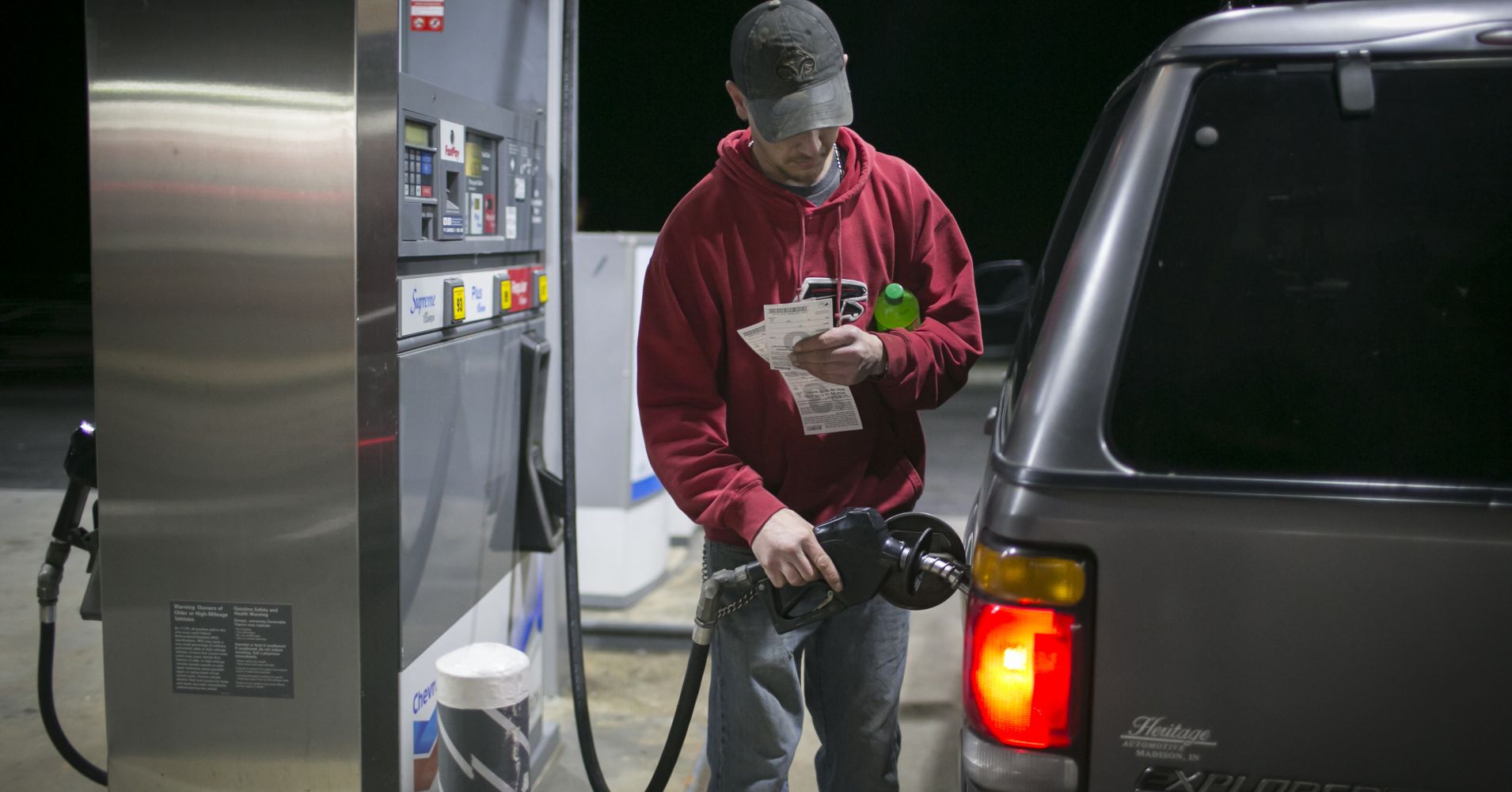
Gas prices this week are expected to be the highest Independence Day average in years. But changing up your driving habits can save you serious money at the pump.
Across the U.S., the American Automobile Association expects gas prices to hit an average of $2.86 per gallon this week. That’s up from $2.23 a year ago and is the highest July Fourth week in four years, according to AAA.
But the Consumer Federation of America estimates people could significantly improve their gas mileage by making a few simple changes. In fact, depending on what your driving habits are now, you could reduce your gas costs by as much as $2 per gallon.
“Paying less for gas means buying more snow-cones and Fourth of July treats,” says Jack Gillis, CFA’s executive director and author of “The Car Book.” Here are five money-saving habits.
Keep off the brakes
Estimated savings: $0.99/gallon
Try to avoid unnecessary braking while on the road. By driving with a light foot, you’ll not only save at the pump, but your car’s brake equipment will last longer. Gillis estimates by keeping your foot off the brake more, you can save up to 35 percent in gas.
Be a smooth operator
Estimated savings: $0.54/gallon
Ease into accelerating and decelerating as much as possible when you drive. If you’re driving smoothly and avoiding the stopping and starting jerks, you can achieve a gas savings of about 33 percent on the highway, Gillis says. That can really add up if you’re planning a long road trip over the holiday. For example, Consumer Reports tested an older Toyota Camry and found that driving with “frequent bursts of acceleration and braking” reduced mileage by 2 to 3 mpg.
Stay properly aligned
Estimated savings: $0.28/gallon
Make sure your car’s wheel alignment is in good shape. If your car is out of alignment, it not only wears out your tires faster, Gillis says it also makes your engine work harder. This can reduce your gas mileage by as much as 10 percent.
Slow down
Estimated savings: $0.20/gallon
Slower really is better when it comes to gas mileage. “Overall, speeding up from 55 mph to 75 is like moving from a compact car to a large SUV,” according to Consumer Reports. In general, the optimal speed for fuel efficiency in most car models is around 55-60 mph. Gillis finds that for every 5 mph you drop your speed on a highway, you can reduce your fuel consumption by 7 percent.
Spend for a tune up
Estimated savings: $0.11/gallon
It’s worth hitting up the mechanic regularly to make sure your car is in good shape. “A poorly tuned engine burns more fuel,” according to the U.S. Department of Energy’s guide to fuel efficiency. Getting a regular tune up ensures your engine is working at peak capacity, which can save you about 4 percent in gas mileage, the CFA estimates.

